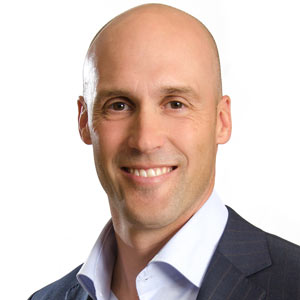There has been no rest for the weary since March 2020 when the U.S. economy was shut down to protect our population from the spread of the COVID pandemic. But the “COVID hangover,” as I call it, since the shutdown has been much worse than the shutdown itself. The often precedent-setting environment we find ourselves in over the months and years since March 2020 has been particularly challenging.
Take, for instance, the general attitude toward work and labor inflation. I don’t think I ever heard of the term “ghosted” as it relates to interviews before 2021, but for us it became an expectation. My recollection of 2021 was dealing with many open positions and continuously increasing compensation simply to get candidates. There were too few “A” players who could be expected to make an immediate and positive impact on an organization. Instead, companies were overpaying “B” players, hoping they could be coached up over time to become a solid contributor. The new faces and the regression in overall talent applied pressure more acutely on those outstanding and loyal professionals who remained to get the job done as best they could.
While there were legitimate concerns about returning to work given the ongoing outbreaks of COVID that rotated throughout the country in much of 2021 and into 2022, people’s opinions about their productivity in the office had changed. In-person meetings and conversations struck up around the water cooler were replaced by seemingly unending virtual calls. Not until late 2022 did some normalcy in hiring practices begin to reveal itself. But companies likely paid at least 20 percent more for talent than two years prior. The battle for return-to-work continues.
More recently, the cost of capital of capital has been a huge challenge. Anyone with a variable interest loan can tell you how the rapid increases of over 5 percent in the Federal Funds rate has impacted both their personal and professional budgets. The current situation has paralyzed small business capital investment plans. Not knowing whether the Federal Reserve will continue to raise rates, pause or even reduce rates has sidelined investment decisions. These rapid changes have impacted investors’ sense of risk and return. They are unable to easily calibrate this important balance until the dust settles and a clearer picture of where we are in the economic cycle is visible.
The cost of capital has increased rapidly but the impact is more significant than many realize. As banks have receded from lending at certain levels they considered risk-worthy, more expensive nonbank capital has filled this void. This significant increase affects investment plans, potential acquisitions, hiring decisions and compensation plans for the entire economy. Questions are being asked as to whether we are in a recession already or should we expect one six months from now. The result of this indecision is that capital sits on the sidelines awaiting direction from the Federal Reserve.
Since March 2020, it seems every quarter brings a new surprise. Business doesn’t like surprises. There is no playbook for what has happened so far, and the future seems more dynamic and less clear than it has ever been. While difficult, this is where the U.S. economic system shines in relation to all other economies. While exhausting most of the time, and surprises come often, I am confident that the U.S. economy will find a new normal that is better than before. ●
Jeffrey Kadlic is Founding Partner of Evolution Capital Partners


